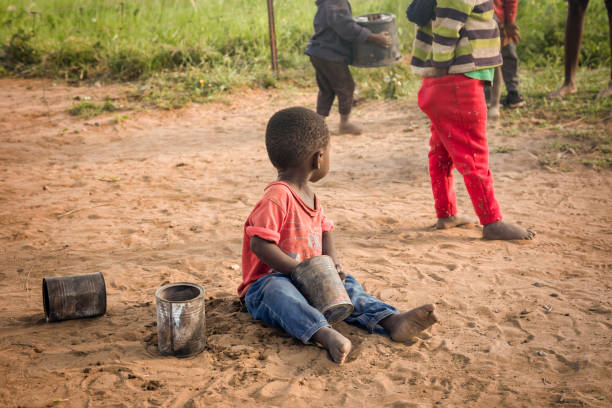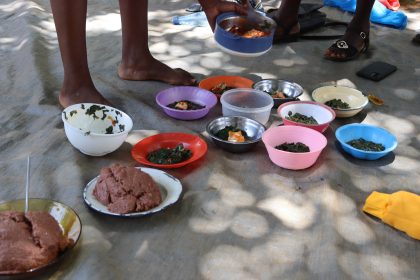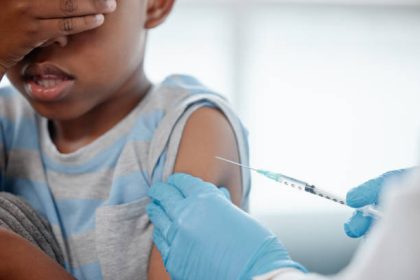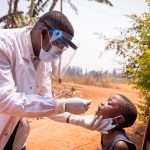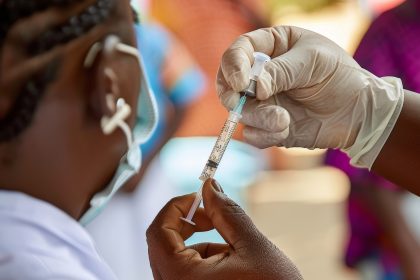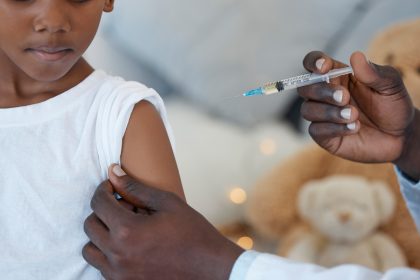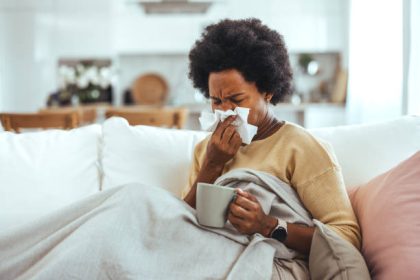Avoid feeding children with highly processed foods and dietary supplements should only be recommended by a healthcare provider- Kepha Nyanumba, nutritionist.
Spending time with children outside their usual routine—whether during school breaks or long weekends—often comes with an unexpected side effect: a wave of illnesses. From sudden coughing fits and fevers to diarrhoea, motion sickness, and flu-like symptoms, their bodies seem to catch everything. And once school resumes, another round begins—what many parents call the dreaded ‘school-based flu.’
This means there is a need to boost your children’s immunity against frequent colds and ailments related to changes in weather and environment.
Take Mirry Makau, a resident of Machakos County. Her two-year-old son rarely gets colds or other childhood infections, but when schools open, she begins dealing with a runny nose, a cough or both.
She says the infections are mostly from the neighbours’ children who, in turn, pick them up from school, Mirry now resorts to boosting the son’s immunity during the holidays despite him not attending school, yet.
Another parent who says “When schools open my two children will come home with the flu,” is Lilian Mueni. “I have to feed my children a balanced diet, omega-3 supplements and a lot of oranges,” explains the mother of three. “I am thinking of getting them the flu vaccine.”
According to Dr Peninnah Musyoka, a paediatrician at Machakos Children’s Clinic, it is easy for children to get infections from others, meaning parents and teachers have to be prepared to handle them.
Dr Musyoka says “parents should stay close to their children and address their physical, psychological and emotional health” but also help boost their immunity via physical activity like playing outside “which gives them the opportunity to get Vitamin D from the sun.”
Dr Musyoka clarifies that although exposure to dirt and germs helps a child’s immune system by teaching it to recognize and fight off germs, overexposure to bad dirt could be harmful.

Dr Musyoka explains: “Exposing the child to the natural environment where the child interacts with soil, plants animals and other humans helps immunomodulate the immune system since the child is exposed to different microbes.”
She continues: “The immune system learns to fine-tune the balance between attack and tolerance mechanisms and can develop the regulatory pathways to avoid overshooting immune responses to harmless allergens.”
Children should also have enough sleep to repair and replenish the body which Dr Musyoka says, releases proteins called cytokines that help fight infection and inflammation. When a child does not sleep well, the body produces fewer cytokines.
Further, parents should notice any behavioural changes as stress hormones can damage the immune system making a child susceptible to diseases.
Required vaccinations before the schools open are also crucial. Dr Musyoka explains vaccines are a weakened or inactivated virus that helps the body produce antibodies against the virus and when the infection comes.
The more children get vaccinated against a particular disease, say in an estate, the better the herd immunity as “it means even if one is not (vaccinated) the risk of getting infected is minimal because the level of that virus circulating is very minimal.”
Children can be given vitamins and other supplements in their natural form: under-fives get Vitamin A supplements to improve their immunity and help prevent pneumonia and diarrhoea.

Kepha Nyanumba, a nutritionist adds that “to boost immunity, children should be provided with a balanced diet, rich in Vitamin C, including oranges, passion fruits, guavas, and strawberries.”
According to Nyanumba, healthy foods like sweet potatoes and arrowroots provide essential nutrients that support the body’s ability to fight infections and “the diet should also include probiotics and zinc, such as nuts, seeds and legumes.”
He, therefore, discourages feeding children with highly processed foods as they increase the risk of infections and other health problems due to compromised immune function.
“The best foods to boost immunity among children include foods rich in zinc, Vitamin C, Vitamin A, Vitamin D, and probiotics in yoghurt or fermented porridge. Dietary supplements should only be considered when recommended by a healthcare provider as a short-term measure for nutritional deficiencies,” explains Kepha.
Dr Musyoka says a child fed a proper diet does not require supplements; however, Vitamin A and D can be supplemented in those living in cold regions with limited natural sunlight.
In schools, Dr Musyoka emphasises hygiene especially hand washing with soap and running water “after going to the toilet, before feeding or after sneezing…or use sanitisers.” Additionally, there should be respiratory etiquette where children are taught how to sneeze into a tissue and discard safely or sneeze into an elbow to avoid spreading infections in the class.
She says classrooms need proper ventilation as the virus stays in circulation longer in overcrowded classes. The sick ones should be assessed, get medication, or stay at home if necessary.
Dr Musyoka also picks out environmental changes as likely to affect children. For instance, moving between warm and cold regions may affect those allergic to cold and vice versa. Others may pick infections from their rural homes like Tinea Capitis (fungal infection of the scalp and hair) and scabies and spread it to other children in school when the schools open.
“You may not be able to control who plays with your children, so it is good to be mindful when you realize that your child has got such infections, they are treated immediately to prevent spreading it to others in school,” she says
Further, unnecessary use of antibiotics leads to antimicrobial resistance as Dr Musyoka explains that flu is a viral infection that cannot be cured using medications like Amoxil or azithromycin which are antibiotics.
“What you are doing is exposing the baby to antimicrobial resistance meaning if the baby requires the antibiotic, it may not function well,” says Dr Musyoka. “The world is not making any new antibiotics, and we have been losing good antibiotics to antimicrobial resistance.”
Sick children, she says, should be diagnosed at the hospital for proper management, not by purchasing over-the-counter medication.



